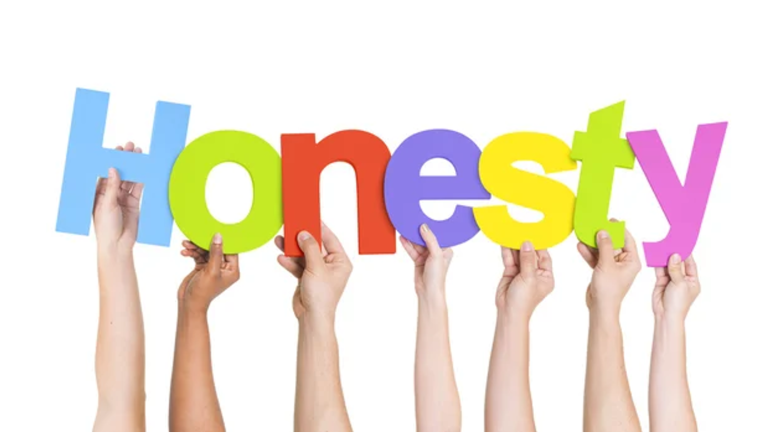Honesty is often hailed as a cardinal virtue, a cornerstone of personal integrity, and a foundational pillar in building trust within organisations. However, being entirely truthful is more complex than it seems. Honesty comes with inherent checks and balances, shaped by psychological and neuroscientific factors. In my article, I make an attempt to talk about some aspects of why people might withhold full honesty and explores the roles of belief systems and childhood experiences in shaping honest behaviours.
- Cognitive Dissonance and Self-Perception
One of the primary reasons people struggle with complete honesty is cognitive dissonance—a psychological discomfort experienced when one’s actions conflict with their beliefs or values. When individuals perceive that honesty may lead to negative consequences, such as social rejection or personal loss, they might choose to withhold the truth to maintain a positive self-image. This is particularly relevant for senior executives, who often fsace complex situations requiring a balance between transparency and strategic discretion.
Research Insight: Studies in psychology suggest that individuals are motivated to reduce cognitive dissonance by rationalising their behaviour or adjusting their beliefs. This process can lead to selective honesty, where individuals are truthful in some contexts but not in others, depending on the anticipated impact on their self-perception and social standing.
- Neuroscientific Factors: The Brain’s Response to Honesty
Neuroscience reveals that the brain’s response to honesty involves complex neural processes. The prefrontal cortex, associated with decision-making and ethical reasoning, plays a pivotal role in evaluating the consequences of honesty. Additionally, the amygdala, responsible for emotional processing, reacts to the potential stress of revealing uncomfortable truths.
Research Insight: What I have learnt that functional MRI studies show that being honest activates the brain’s reward system, particularly when honesty aligns with an individual’s values. However, the anticipation of negative repercussions can trigger the brain’s threat response, leading to stress or anxiety. This dual response explains why individuals might weigh the benefits and risks of honesty, often resulting in a cautious approach to full disclosure.
- The Influence of Belief Systems and Moral Reasoning
Belief systems and moral reasoning significantly impact one’s propensity for honesty. These systems are shaped by cultural, religious, and personal values, which can either encourage or inhibit honest behaviour. For instance, a belief in the importance of social harmony may lead individuals to withhold potentially disruptive truths, while a strong commitment to ethical principles might promote transparency.
Research Insight: Developmental psychology suggests that moral reasoning evolves over time, influenced by societal norms and personal experiences. For senior executives, whose decisions can affect large groups, understanding the moral frameworks guiding their actions is critical. This awareness can help in navigating the ethical dilemmas associated with honesty, particularly in situations involving stakeholder interests.
- Childhood Experiences and the Development of Honest Behaviours
Childhood experiences play a foundational role in shaping attitudes toward honesty. Early interactions with caregivers, including the consequences faced for truthful or deceitful behaviour, contribute to the development of an individual’s honesty-related values. Consistent reinforcement of the value of honesty in childhood can lead to a strong internal commitment to truthfulness in adulthood.
Research Insight: Longitudinal studies in developmental psychology indicate that individuals who were raised in environments that valued open communication and provided constructive feedback for honesty are more likely to exhibit honest behaviours later in life. Conversely, those exposed to punitive consequences for honesty may develop a tendency to conceal the truth to avoid conflict or punishment.
- The Role of Organisational Culture and Leadership
For senior executives, the organisational culture they foster significantly influences honesty within their teams. A culture that rewards transparency and ethical behaviour encourages individuals to be truthful, even in challenging situations. Conversely, a culture that penalises mistakes or discourages open communication can create an environment where selective honesty or even deception becomes a survival strategy.
Research Insight: Organisational behaviour studies highlight the importance of leadership in setting the tone for honesty. Leaders who model transparent and ethical behaviour can instil these values within their teams, promoting a culture of honesty and integrity. This is crucial for building trust and fostering an environment where employees feel safe to speak the truth.
As an ending note, I’d say that this is an interesting topic for discussion and just about 800 words may not do justice, however, I am grateful for you to have taken out time to read. Happy to hear fany perspectives.
#Honesty, while universally valued, is governed by intricate checks and balances rooted in psychological and neuroscientific factors. Cognitive dissonance, neural responses, belief systems, childhood experiences, and organisational culture all play roles in shaping honest behaviours.
The views and opinions published here belong to the author and do not necessarily reflect the views and opinions of the publisher.



Be the first to comment on "Why Honesty Comes with Checks and Balances"